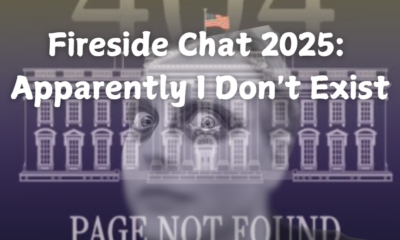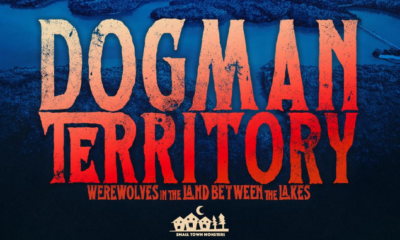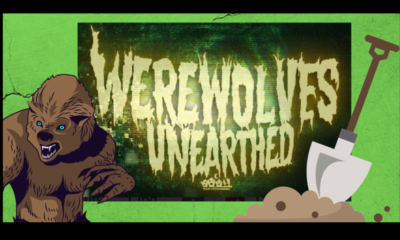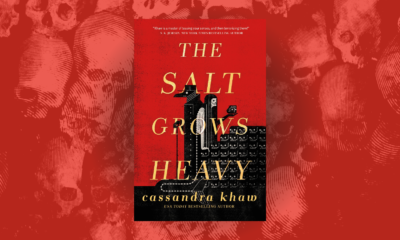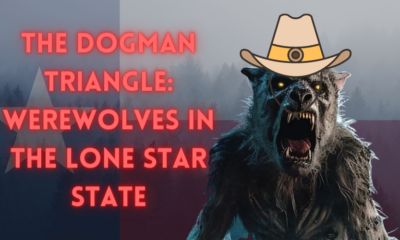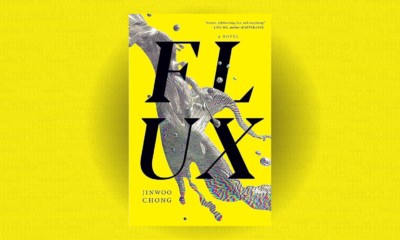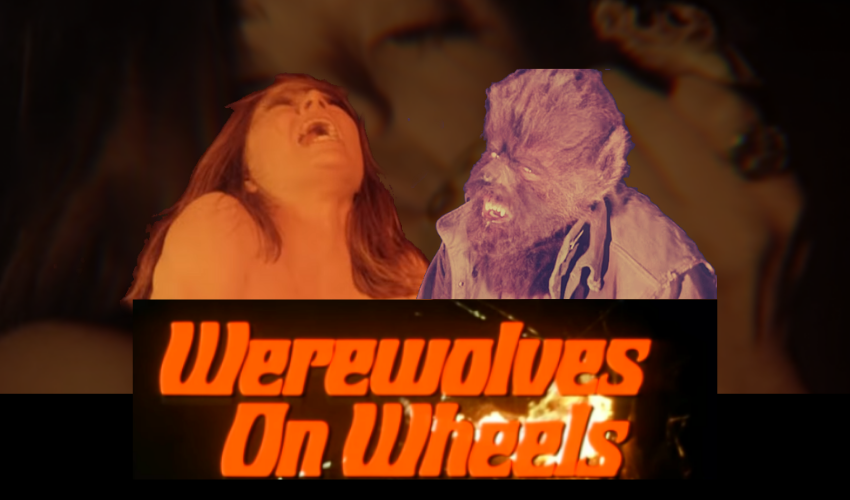
Review: 1971’s Werewolves on Wheels
Yes. That’s the answer to the question you were wondering. Yes. There are werewolves. Yes, they ride motorcycles.
And with that out of the way, we can talk about the enormity of this movie and the hundreds of things it also adds besides werewolves riding motorcycles. Because, beyond the obvious, there is so much more to this movie. There’s cultists, gang dynamics, tarot readings, beards (so many, many beards), Satan, existentialism, and frolicking bikers before the darkened days of “no homo”.
People, this is WEREWOLVES ON WHEELS…
The Plot:
A biker gang be biker-ganging. They are a group of friends who love their hogs and live to ride them. They also love to drink beer and hug each other. They’re just living life, man, and those be damned to try to stop them.
They have cool biker names like…”Scarf” and “Movie”. I’m sure it was much more menacing in the 70’s. However, our leader is the stern but patient, Adam (Stephen Oliver in a beard just as luscious as James Brolin in The Amityville Horror). His main “old lady” is Helen (D.J. Anderson), who is basically the biker mom of the group. And then there’s the mysterious (sometimes sexist and bitchy) Tarot…who plays tarot cards. Again, I’m sure that their names were much more menacing back then.
During their biker adventures (mostly just drinking and free love), they happen across a land owned by Satanist cultists…which they decide is the best place to get drunk and have an orgy.
But, alas, it is not.
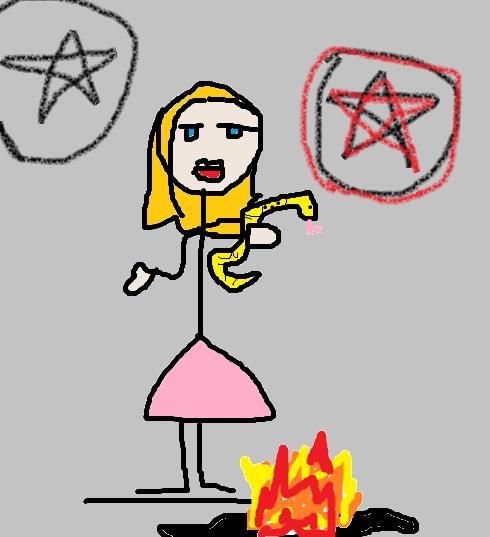
Soon, a strange trace overcomes Helen and she starts trace-fire-dancing with a large nope-rope, and begins to change into a Satanic werewolf. Soon, bikers are killed off one-by-one in wonderfully 70’s-style slow-mo deaths.
Tarot, ever the psychic, knows that something is wrong and tries to save Adam and the group before it’s too late. But can this wet-blanket go toe-to-toe with Satan himself, or is this band of beer-chugging brothers doomed to eternal damnation?
Thoughts:
I will be honest, I saw the cover and immediately thought, “Oh, this is going to be on Manos: The Hands of Fate levels of crap…terrific!”
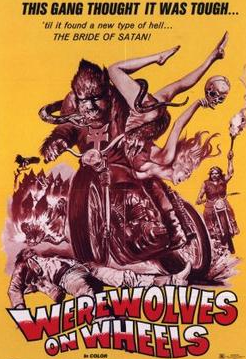
However, within the first shots, I was pleasantly surprised. The camera-work is actually very well done. The music (albeit being for a biker-exploitation film in the 70’s) was actually good and engaging. The costumes were terrific and while the acting was camp-good, there were a few scenes that felt actually genuine.
I’m going to detail it out in my brain roll segment, but the chemistry between Adam and Tarot mixed well together. Their scenes were the most enjoyable because they came off as the most genuine and expressive. D.J. Anderson did a great job with a lot of trope-y schlock coming her way. She was beautiful and fit into the role perfectly.
There were quite a few shots that were artistically done and diverted from other horror of the time and what was to come. The editing was well-done and kept the pace (with the exception of the “filling up our hogs at the gas station” scene).
So, all in all, this movie both exceeded and also met my expectations (which honestly were a bit low).

Brain Roll Juice:
So much. So, so much to say.
Okay I don’t know if you know this, but sometimes I have a special radar for certain things, especially in cinema (hint: it’s queer-related). Now granted the Hays code in Hollywood was ceremonially axed in 1968, it left a LOT of ripples in its wake, some continuing to this day.
We’ve all heard the shaking of heads and the utterance of “go woke, go broke” whenever a high-budget movie tries to step out of the trope-like binds and doesn’t financially succeed.
Hell, even my good pal, Jim Phoenix brought this up in our review of The Shed. Gay anything in a movie is a risk. Honest LGBTQ+ representation that actually looks queerness in the face and examines it is seen as a high-risk, low-reward venture for studios. Movies that are schlock and exploitation are more acceptable, but it’s still…not exactly welcomed.
So, what’s my pay-off to this massive lead-up? Hear me out.
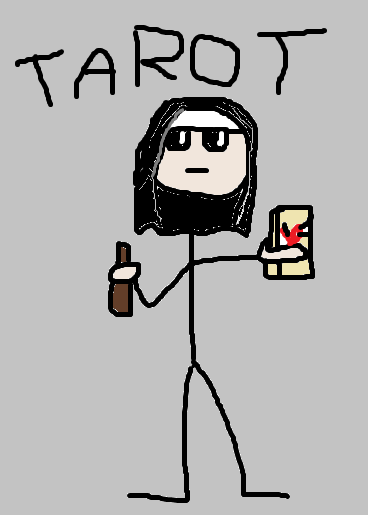
There’s a lot of chemistry between Adam and Tarot. And while Tarot is kind of a bitchy dude, he’s a likeable character (at least I like him). In fact, if made today, he’d probably be portrayed by a female. He is supportive and even virginal, a Cassandra-type figure trying to save his…very good friend.
And I’m not saying that their relationship is that of a sexual one. The vibes I got from Tarot are even that of an ace, or an aromantic ace. He’s fiercely loyal and emotionally attached to Adam, which seems to be partially if not wholly reciprocated.
Hear me out…Hollywood, sell me the rights to this film for a Del Taco meal, and I’ll re-write and direct. Same characters, but there’s a romantic triangle between Adam, Helen, and Tarot.
Helen senses something’s off, but not exactly what, meanwhile Tarot and Adam get closer, but Helen gets angry because Adam denies (or doesn’t recognize it yet). Helen, wanting to keep Adam close to her, willingly goes to the cult and asks for the power “to destroy anyone who gets in her way”. Of course Satan is a dick and makes her a werewolf.

Now Tarot can sense something (he’s still a psychic like in the original movie) is not quite right and tries to warn Adam about it. Adam thinks he’s just being a dick to Helen and gets defensive, thinking Tarot is trying to push their ambiguous relationship into something he’s not ready for.
Helen begins to kill the others because of stupid shit they say or do, and starts to lose more and more control over her werewolf-ness. It’s scaring her, but she can’t come clean because then Adam might leave her.
It all culminates into a final scene when Adam must choose who to believe – his lying but devastated lover, or Tarot and their confusing feelings. Both take courage to confront, and honesty is the only way he can save them. Will love win or will he doom them all?
I have a few ideas for the ending, but I ain’t gonna spoil it for y’all.
Anyway, Hollywood people, hit me up on Twitter (@brannykj). I got the goods.
Bottomline:
Super fun. Super retro. Super beards and biker lingo. A gem of exploitation nostalgia. If that’s your mama jama, then you’ll be all over this flick.
 (4 / 5)
(4 / 5)
Movies n TV
Wheel of Time A Question of Crimson Is a Political Espionage Delight
Episode two of Wheel of Time felt like the beginning of a long journey. Stories are unfolding, lives are changing, and blood is spilling.
Let’s discuss.
The story
We begin this episode in the past with Elayne’s mother, Queen Morgase. It turns out her rise to the throne was a bit, shall we say, cutthroat. So when she shows up at the White Tower, Siuan is concerned.
She might have reason to be, too.
Meanwhile, Rand, Egwene, Moiraine, Lan and Aviendha are in the Spine of The World. As they travel through some of the most breathtaking lands I have ever seen on a TV show, Egwene is plagued with nightmares. We think at first that’s just her trauma working itself through her system. But we soon find out that it might not be that straightforward.
Finally, Perrin returns home to heal after his hand is almost cut in half. But when he gets there he finds the town has been infested by Children of The Light. And they’re looking for him.
What worked
There was something heartwarming in this episode about political espionage and choking religious persecution. And that is Elayne’s relationship with her family.
I have consumed a lot of fantasy content with royal families. And I have never once heard a princess call her mother ‘Mum’. I’ve never seen royal siblings get along. And I have sure as hell never seen a princess have a good relationship with her step-parent.
This was refreshing. Even though Queen Morgase is kind of a horrible person she seems like a good mother. And that’s an unexpected delight.

Of course, this is just one storyline among many. And while this can sometimes be overwhelming, in this case it wasn’t.
I’ll be honest, some of these storylines are going to drag for me. I know this because I’ve read some of the Wheel of Time books and I have an idea that not all the characters exactly pique my interest.
No one likes all the characters. No one likes all the storylines. While I am here for the political espionage between Queen Morgase and Siuan, not everyone likes it. While others might be fascinated with Selene trying to win Rand back, I couldn’t care less.
Having multiple storylines keeps everyone’s attention better. So long as things don’t get out of hand. Things can easily get out of hand. But this seems to be managed well.
So far.
What didn’t work
As I mentioned above, I’m not thrilled with Rand’s story at this point. And while it’s fine to not like a storyline when there are this many to choose from, it’s not fantastic that the one I like the least is the one involving our two main characters. And anytime we were with the team at the Spine of The World, the only thing that brought me joy was Moirain’s hat. It reminded me of Stockard Channing’s hat in Practical Magic.
The problem is that Rand is Charlie Brown with controversial magical powers. He is boring, serious, and pessimistic.
And yes, I understand that he has a heavy emotional burden and he’s the Dragon Reborn and that’s quite taxing and all. But let’s be fair, there isn’t a single person in this show that doesn’t have a heavy burden. And most of them manage to be fun occasionally.

All that being said, this episode of Wheel of Time did exactly what it needed to do. It set up conflicts at each of the three locations. It established emotional ties between the characters and the events. And it established goals for everyone.
This was, in short, a solid episode. Not groundbreaking, not mind-blowing or life changing. It was simply good. It was entertaining and moved the plot forward.
Well done.
 (3.5 / 5)
(3.5 / 5)
Movies n TV
Wheel of Time Returns With A Bang
Wheel of Time is back for season three. There are mixed feelings regarding this. Last season, there were some serious pacing issues. And some serious sticking to the book’s storyline issues. But we’re two seasons in, and we don’t give up so easily. So let’s dive into episode one, To Race the Shadow.
By the way, I highly recommend watching this episode with the subtitles on. You’ll see why.
The story
We begin this episode with Liandrin facing a trial of sorts for her rampant betrayal. She does her best to gaslight her Aes Sedai sisters into thinking that Siuan Sanche is the real traitor.

When that doesn’t work, she reveals how many Black Aes Sedai have actually infiltrated the tower.
Spoiler, it’s a lot.
In the aftermath, our whole team gathers to drink and enjoy one night of relaxation before they head out to the Tear to form an army for Rand. All is going well until they’re attacked by myriad creatures and a sentient axe.
What worked
This episode was long. It had a run time of an hour and eleven minutes. And a lot of that run time was spent in heavy dialog scenes.
Fortunately, these were well-done scenes.
If you’re going to have a lot of talking scenes, there are good ways and bad ways to do it. Last season, we saw lots of examples of the bad way to do it. But this episode did it well. For one thing, other things were going on while conversations were taking place. The characters are drinking, playing games, walking through an interesting city. And the scenes themselves didn’t stretch out. They weren’t repetitive. We heard what the character had to say, then we moved on.
It was also nice that the point of these scenes wasn’t just info dumps. We had character development. We had romantic interactions. We had plot development and foreshadowing.
Overall, this episode felt like what it was. A moment of calm before a storm.
Taking a step back, I’d be remiss if I didn’t address the fight scene at the start of the episode. Because it was epic.
The magic looked amazing. The martial arts that went along with it looked fantastic. The costumes were beautiful. It was just incredibly fun to watch.
More than that, it was emotional. We lost some characters in that fight that were important. And it was clearly emotionally shattering for many of our characters, who found themselves betrayed by people they trusted.
So many of them.
It was a great way to open the season.
What didn’t work
Despite that, this episode wasn’t without its flaws.
First off, there were a lot of dialog scenes. And they were good scenes, as I’ve already discussed. But it was one after another after another. And when your episode is, again, an hour and eleven minutes, it’s maybe a little much to have so much chit-chat. Couldn’t some of these conversations, important as they were, have been moved to maybe another episode?
Finally, I want to talk about Egwene’s travel through the arches.

I feel like maybe there were some deleted scenes here. Because there must have been more to that visit than what we saw, right?
We could have seen Egwene battle Rand. That would have been badass and emotionally devastating. We could have seen her with a quiet life with Rand back home at the Two Rivers. We could have seen anything except for the quick clip of Rand in a bloody river, followed by Egwene being shoved back out in a bloody shift.
Bad job. But at least it wasn’t an extended scene of Moiraine collecting bathwater, and then taking a bath while looking sad. If we’d started this season with another scene like that, it might have broken my brain.
Amazon dropped the first three episodes at once. So we’ll be back soon to talk about episode two. See you then.
 (4 / 5)
(4 / 5)
Movies n TV
Entertaining as hell: Eight Legged Freaks (2002) Review
Early 2000s is a special era for the industry. It accepts the cheesiness and corniness of movie making, in turn producing some gems in their own right. Eight Legged Freaks starring David Arquette and young Scarlet Johanson is a horror comedy about giant spiders who overtake a small town. As crazy as that premise sounds, the movie surprisingly has a ton of heart and is super entertaining. Let’s review, shall we?
Plot
We start Eight Legged Freaks with a shot of toxic waste spilling into the water supply of Joshua, a spider farm owner. He is friends with Mike, one of our protagonists, who is a science geek and a spider enthusiast. Mike notices something quite right upon visiting Joshua, but no one takes him seriously. We are then introduced to the rest of the crew. Mike’s mother Samantha, the town sheriff, is too busy chasing Ashley, his sister, who is dating the town mayor’s son Bret (something Samantha does not approve of). We also have Chris, who returns to the town to save his father’s legacy in the town mines. He has opposition from Wade, Bret’s father, who wants to use the mines for his business ventures. Lots of drama going on that will only get juicier once the spiders get loose.
The creepy crawlies quickly dispose of Joshua and make their grand appearance after Ashley rejects Bret’s advances, abandoning him in the middle of a desert. A glorious chase sequence ensues as the spiders make their way towards the town, wreaking havoc on its residents. In a true horror fashion (which the movie acknowledges), it takes some convincing from Mike and then from Samantha for the town to take the threat seriously. The tongue-in-cheek style of narrative adds the comedy aspect to a movie that would otherwise burn out fairly quickly.
The remaining characters hide out in a shopping mall as it’s the only somewhat sturdy building in the area. This doesn’t last long as the spiders break in, forcing them to run through the mines. Their resources to fight the creepy crawlies off are limited as the methane gas doesn’t allow them to use firearms. Such conditions require resourceful thinking from Chris, who uses perfume to fend off the leader of the spider group and save himself during the climax of the movie.
Character dynamics are not forgotten once the action kicks in. We have Chris confessing his long-term feelings for Samantha which she knew all along, which provided some comedic relief. Bret also reunites with Ashley and apologises for being an asshole. Mike finally gets the appreciation he deserves as his knowledge saves the townsfolk more than once during the whole ordeal.
We end the movie with the town’s radio show person telling the story as an urban legend during his segment. This brings it into question – how much of it happened the way he said it did? We can only guess…
Overall thoughts
Eight Legged Freaks is a fun creature feature with some self-aware commentary on genre tropes that doesn’t take itself too seriously. The acting is good, the pacing fitting and the characters are likeable enough for you to want them to make it through. Definitely a must watch, if you don’t suffer from arachnophobia, that is.
 (5 / 5)
(5 / 5)


